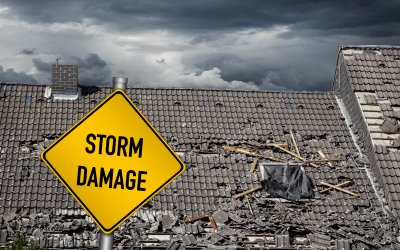Why Home Insurance Costs Are Rising?
If you’re a homeowner in Belfast or the surrounding areas, you may have noticed home insurance costs are rising. According to recent data from Consumer Intelligence, home insurance costs have risen by nearly 30% in the past year. While there has been a slight dip in prices over the last three months, many homeowners are still feeling the pinch – especially if renewal prices have more than doubled in some cases.
Let’s explore why this is happening and, more importantly, what you can do to protect your pocket.
Why Are Home Insurance Prices Increasing?
The rise in home insurance premiums is linked to several key factors, including:
1. Higher Labour and Material Costs
The cost of labour and building materials has soared over the past year. This makes it more expensive for insurers to cover claims, such as repairs for damage caused by storms, floods, or accidental incidents.
2. Supply Chain Issues
Global supply chain disruptions have made it harder and pricier to source materials quickly. This has contributed to increased claim costs, which insurers often pass on to customers.
3. Market Variability
Not all insurers have been equally affected. Some providers have been hit harder by rising costs, resulting in more significant premium increases. This variability makes it crucial for homeowners to shop around for better deals.
How Belfast and Northern Ireland Homeowners Can Save on Home Insurance
While these increases might seem unavoidable, there are steps you can take to find competitive rates and keep your costs under control.
1. Compare Policies
One of the simplest ways to save is by comparing insurance policies. Prices can vary significantly between providers, so don’t accept your renewal quote without shopping around.
Tip: Use comparison websites, but also check with local brokers who might have access to exclusive deals in the Belfast area.
2. Lock in a Competitive Rate
If you find a reasonable price today, consider locking it in for a year or longer. With prices expected to fluctuate, securing a fixed rate can help you avoid further increases.
3. Review Your Coverage
Take time to review your policy and ensure you’re not paying for coverage you don’t need. For example:
Do you have unnecessary add-ons, like accidental damage for items you rarely use?
Is your rebuild value accurate, or is it overestimated?
4. Increase Your Excess
Opting for a higher voluntary excess can lower your premium. Just be sure you can afford the excess amount if you need to make a claim.
5. Bundle Policies
If you have multiple insurance needs, such as car and home insurance, bundling them with the same provider could earn you a discount.
Why Acting Now Matters
Even though there’s been a slight drop in prices over the last three months, the overall trend suggests that home insurance costs could continue to rise. Acting now to compare policies and secure a competitive rate can save you money in the long run.
Do You Need Home Insurance?
Although home insurance isn’t mandatory, it’s a smart way to protect your property and belongings if something unexpected happens. Here’s a breakdown of who needs it and why:
If You’re a Homeowner: To cover both your property and possessions, you’ll need buildings insurance and contents insurance. These can be bought separately, but combining them into one policy often saves money.
If You’re Renting: Your landlord’s insurance typically covers the building, but not your personal items. Tenants should consider contents insurance to protect their belongings.
If You’re a Student: Before purchasing insurance, check if your parents’ policy already includes cover for your possessions – it’s a common feature in many plans.
Wherever you call home, having the right insurance in place ensures peace of mind and financial protection when you need it most.
An expert insurance broker can help you make informed decisions about protecting your biggest investment – your home.




